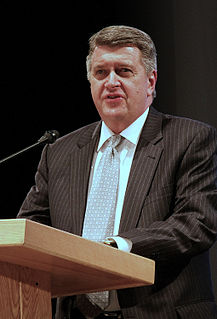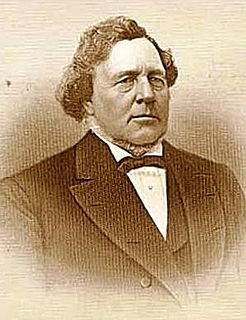A Quote by John Owen
The vigor and power and comfort of our spiritual life depends on our mortification of deeds of the flesh.
Related Quotes
The vigour, and power, and comfort of our spiritual life depends on the mortification of the deeds of the flesh...The choicest believers, who are assuredly freed from the condemning power of sin, ought yet to make it their business all their days to mortify the indwelling power of sin...Do you mortify; do you make it your daily work; be always at it whilst you live; cease not a day from this work; be killing sin or it will be killing you.
Christians often equate holiness with activism and spiritual disciplines. And while it's true that activism is often the outgrowth of holiness and spiritual disciplines are necessary for the cultivation of holiness, the pattern of piety in the Scripture is more explicitly about our character. We put off sin and put on righteousness. We put to death the deeds of the flesh and put on Christ. To use the older language, we pursue mortification of the old man and the vivification of the new.
Managing the power of choice, with all its creative and spiritual implications, is the essence of the human experience. All spiritual teachings are directed toward inspiring us to recognize that the power to make choices is the dynamic that converts our spirits into matter, our words into flesh. Choice is the process of creation itself.
Our scientific power has outrun our spiritual power. We have guided missiles and misguided men. Our hope for creative living lies in our ability to reestablish the spiritual needs of our lives in personal character and social justice. Without this spiritual and moral reawakening we shall destroy ourselves in the misuse of our own instruments.
We must remember that much spiritual growth does not occur suddenly but rather through time and experience. The encouraging message of the gospel is that God does not often require us to perform sensational or extraordinary deeds but rather to try to do better today than we did yesterday. He is mindful of our desires, our determination, and our direction as well as of our deeds.
Many of us incorrectly assume that a spiritual life begins when we change what we normally do in our daily life. We feel we must change our job, our living situation, our relationship, our address, our diet, or our clothes before we can truly begin a spiritual practice. And yet it is not the act but the awareness, the vitality, and the kindness we bring to our work that allows it to become sacred.
Our tissues change as we live: the food we eat and the air we breathe become flesh of our flesh and bone of our bone, and the momentary elements of our flesh and bone pass out of our body every day with our excreta. We are but whirlpools in a river of ever-flowing water. We are not stuff that abides, but patterns that perpetuate themselves
The patient endurance of the saints exhausts the evil power that attacks them, since it makes them glory in sufferings undergone for the sake of the truth. It teaches those too much concerned with a life in the flesh to deepen themselves through such sufferings instead of pursuing ease and comfort; and it makes the flesh's natural weakness in the endurance of suffering a foundation for overwhelming spiritual power. For the natural weakness of the saints is precisely such a foundation, since the Lord has made their weakness stronger than the proud devil.

































